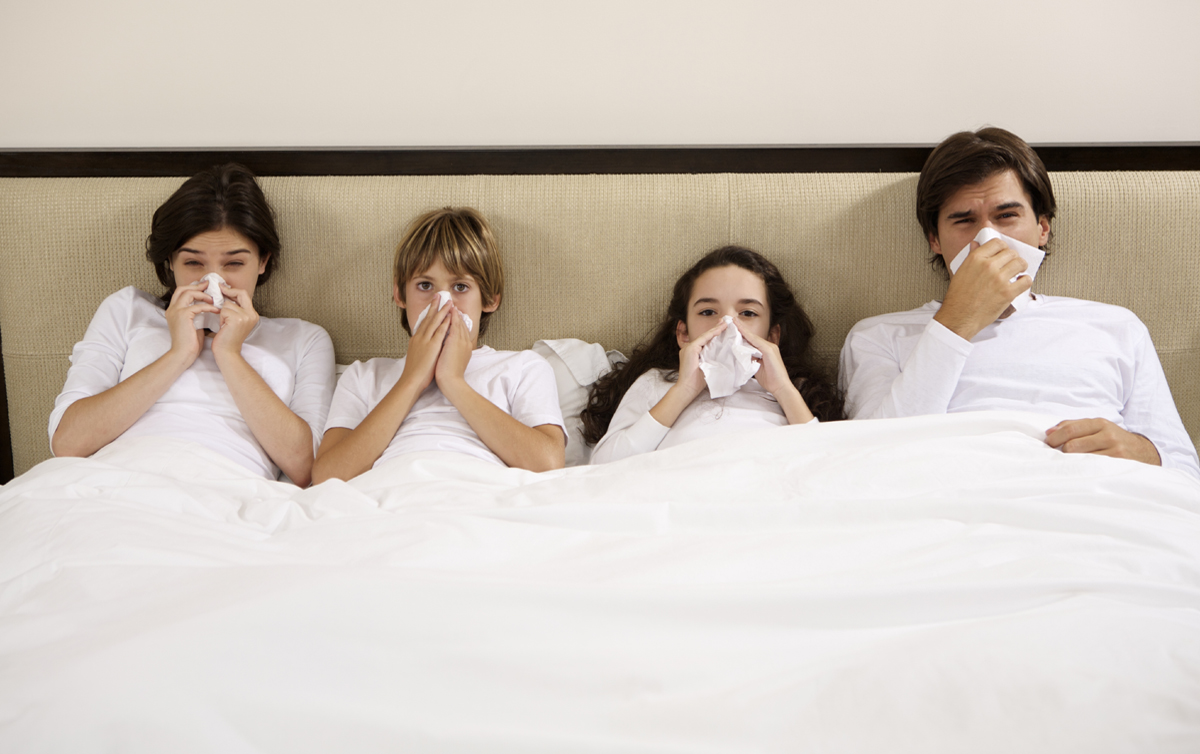 Tips for stopping the spread during cold and flu season
Tips for stopping the spread during cold and flu season
By Kathy Riggs
You may not be able to make it through the winter without getting sick. However, you can certainly do your part to reduce the spread of colds and flu, even during this peak season when we are often indoors without much fresh air circulating.
The National Centers for Disease Control and Prevention estimates that in the United States alone, there are 1 billion cases of the common cold every year. Add in 5 to 20 percent of the population catching the flu and that’s a lot of sickness! There are measures we can take to reduce the spread of illness in homes, schools, and the workplace. Consider these ideas:
—Clean and wipe down shared surfaces such as countertops, keyboards, and phones.
—Avoid touching your mouth, nose, and eyes, and wash hands thoroughly and often.
—Get a flu shot if possible. It is most important for children, the elderly, and those with compromised immune systems.
—Eat healthy foods to strengthen your immune system.
—Exercise moderately to maintain a healthy immune system.
—If you are prone to sickness, ask your doctor about vitamin supplements to help support your immune system.
—Drink plenty of water to stay hydrated.
—Get plenty of rest.
—Try to avoid people who are sick, and know when to stay home if you are sick.
—Keep hand sanitizer on hand at home, at work, and in the car.
Contain your sneeze and cough
If you do get sick but not sick enough to stay home in bed, be considerate of those you will be around at work, in the grocery store, at school, etc. Water droplets expelled as a sneeze or cough can be propelled 5 feet or more.
—Cover your nose and mouth when you sneeze or cough.
—Use a clean tissue when you sneeze or have a runny nose. Toss used tissues in the trash.
—If you cannot find a tissue quickly, sneeze into your sleeve.
—Do not sneeze into your hands!
—Even if you catch your sneeze or cough with a tissue, wash your hands thoroughly after with soap and water.
Use over-the-counter medicines appropriately
If you choose to reduce symptoms so you can function at home or work, be informed regarding possible side effects, and use medicine only as directed. If you take prescription medications, it is always good to check with your doctor first before combining medications. For advice choosing over-the-counter cold and flu medicines, you may also get good basic information online from reliable sources such as WebMD. See webmd.com/cold-and-flu/buy-fast-relief-cold-flu#1 for answers to questions such as: “Should I take a decongestant or an antihistamine?” or “What’s best for my sore throat?”
Even though you may not be experiencing full symptoms while taking over-the-counter medicines, you may still be contagious. Don’t be fooled into complacency and forget your responsibility to prevent spreading germs. Additional information and tips are available at cdc.gov and nsc.org.
Kathy Riggs is a Utah State University Extension professor.
Articles related to “Tips for stopping the spread during cold and flu season”
Bugged by the flu or other ailments? Three ways good nutrition protects and heals
Let food be thy medicine: Healing my depression, anxiety, and fibromyalgia



